In May 2017 the U.S. Department of State released its FY 2018 International Affairs budget request for the State Department and USAID. The request slashed billions from the current budget in support of President Trump’s ‘America First’ vision. Capt. Gail Harris examines the impact of the proposed cut.
If you don’t fund the State Department fully, then I need to buy more ammunition, ultimately. So I think it’s a cost-benefit ratio. The more that we put into the State Department’s diplomacy, hopefully the less we have to put into a military budget as we deal with the outcome of an apparent American withdrawal from the international scene.
-Secretary of Defense James Mattis, while serving as Commander of CENTCOM, March 2013
Over the years, I’ve had quite a number of people come up to me with a puzzled, pleasantly surprised expression. They were confused because they had either seen or read about some military leader addressing the point that the military was not the solution to every national security problem. I’d usually smile and say that’s because military people know firsthand how horrible war is and that it should only be used when all other methods have failed.
These exchanges were on my mind as I attended the Ofxam Hunger & Famine Advocacy Day in Washington DC on July 1st and 2nd, trying to figure out how to continue the vitally important job of non-military humanitarian support while facing the reality of the proposed 2018 International Affairs budget cuts.

Most Americans acknowledge that our military is a necessity, and “Support Our Troops” bumper stickers and “Merica” memes are two of the most common sights we run across on a daily basis. Hence, if you asked the average American voter, they would say that the Department of Defense needs to be able to “do its job,” and thus needs funding. The missing link, particularly for the average voter, is that the State Department’s job is equally important in keeping our country safe.
War is hell, kills a lot of people, and our beloved country needs to be ready to fight. The cost is equally well known. In World War I, 9 Million died. World War II was even more horrific. There were over 60 million people killed and 30 million more were made refugees. What is important yet unacknowledged is how these refugees – and the aid they require for food, clean water, shelter, security, and resettling – are also part of that human cost. Refugees are a crucial link in the battle against transnational threats. If we are truly trying to be better prepared for global armed conflicts, humanitarian aid goes a long way toward preventing them in the first place. Showing why is as easy as showing the link between one of the great films from the 1990’s and one from the mid 2000’s, Black Hawk Down and Captain Phillips.
Why Aid Matters: Somalia
Sometimes, a humanitarian situation, such as widespread poverty and famine can lead to a national security problem. Who could have predicted that poverty and famine in Somalia – fueled by international disregard for a vicious civil war, a drop of support from the international community following a highly visible Special Operations tragedy, and illegal fishing in Somalian waters that deplete vital sources of protein and hobble an entire country’s fishing fleet – could lead to a major piracy problem? I’d start with any afloat member of the Navy, Marines, or Coast Guard who has participated in the counter-piracy mission for over ten years. Somalis started hijacking ships in 2005 and according to the Navy:
At their peak, pirates could operate for weeks at a time, up to 1,200 nautical miles from the Somali coast, in shipping lanes off the Horn of Africa. At its maximum, the pirate operating area comprised an area more than 2.85 million square nautical miles, an area larger than the United States.
The ransom payments were in the millions. The US Navy had to set up a multinational naval force to deal with the situation, train sailors, Coasties and Marines in advanced Visit, Board, Search and Seizure (VBSS) techniques, and increased deployments in the area. Every dollar not spent by the State Department to improve the situation in Somalia became untold dollars spent by DOD redirecting Navy frigates.
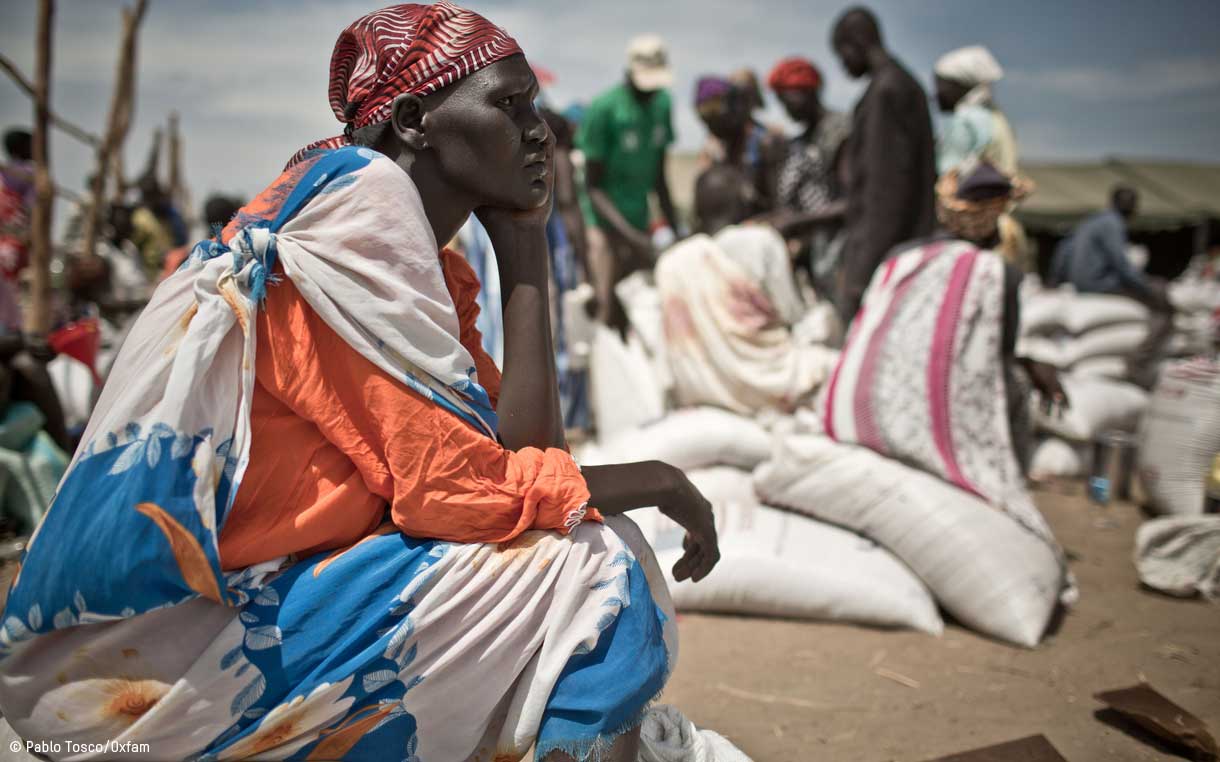
According to the UN there are now 65 million refugees worldwide due to conflict, persecution, and disaster. This is the largest number since World War 2 … Additionally, the world is facing an unprecedented four famines: severe food insecurity currently affects approximately 30 million people … as many as 6 million people could die of starvation this year alone.
Oxfam History and Conference 2017
These are the realities the State Department and a variety of other organizations are trying to confront. A number of years ago, I was invited to become part of Oxfam, an international development and relief organization, as part of their Sisters of the Planet program. As they say on their website, it’s a program that:
Brings together prominent women in the US, including Members of Congress and leaders in civic, business, faith-based and philanthropic communities, who recognize the disproportionate impact of poverty and hunger on poor people, especially women and children. Sisters of the Planet Ambassadors support US policy that responds to the needs of the most vulnerable, both at home and abroad.
I agreed to be part of the program. One of the things that most impressed me was that they were an organization that did not take government funding, which to my mind meant they could be more impartial in things like budget discussions.
Oxfam’s bottom line this year is that the proposed 2018 International Affairs budget cuts will disproportionately impact poverty-fighting development programs, as well as lifesaving humanitarian aid. These could have cascading consequences for those living in poverty, facing conflict, subject to displacement, and threatened by famine. They also pointed out that “foreign aid” represents just 1% of our budget – less than the amount committed during any other American presidency, including the Reagan administration – and funds the multidepartment aid and humanitarian relief programs.
The Oxfam speakers felt that this is a particularly crucial time in our history. According to the UN there are now 65 million refugees worldwide due to conflict, persecution, and disaster. This is the largest number since World War 2, and all of those people are in need of humanitarian assistance.
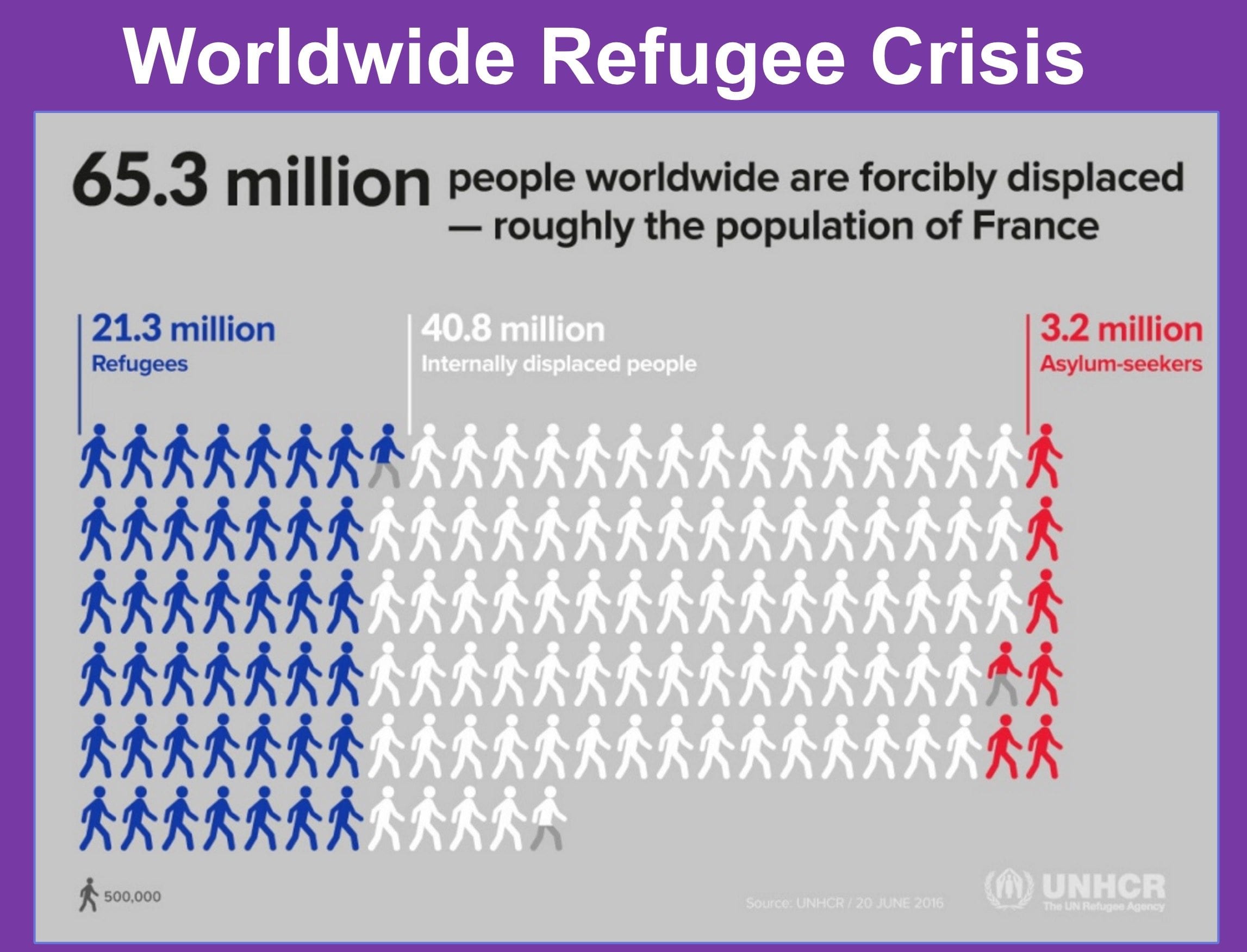
Additionally, the world is facing an unprecedented four famines: severe food insecurity currently affects approximately 30 million people in northeast Nigeria, Somalia, South Sudan, and Yemen.
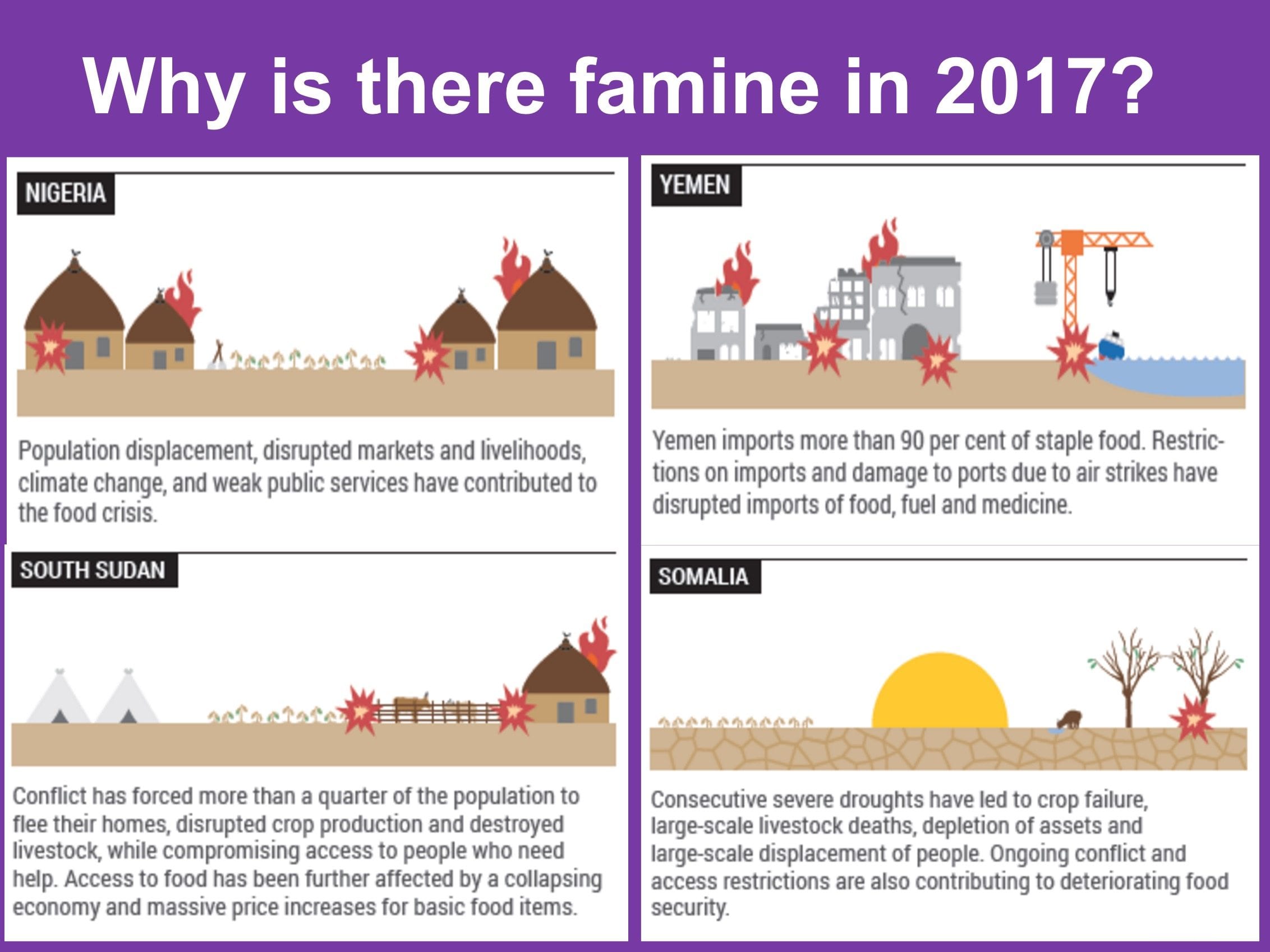
I asked what the effect would be on those facing famine if the proposed cuts went through. The response was as many as 6 million people could die of starvation this year alone. They pointed out that there was broad bipartisan support to the proposed budget cuts across the country from business leaders, faith leaders and top military officials. This support – including the fact that so many people in our government, who are opposed on nearly ever other issue – is not being translated into action is indicative of either American ignorance of how these programs prevent wars, or our apathy.
Effects of the Budget
Some other impacts of the proposed budget include:
- In fiscal year 2016, 10.5 million farmers were helped with improved technologies and management practices. 5.25 million would lose access to these programs that help them grow their way out of poverty.
- In fiscal year 2016, 56.5 million people were reached with emergency food aid; under proposed cuts 22.6 million in crises could lose access to food assistance.
- Proposed cut of 45.6% to US assistance to water and sanitation programs could result in 2.2 million people not gaining access to safe water and sanitation services.
- Proposed cut of 40% to US non-food humanitarian responses which include medicine, clean water, sanitation, and shelter, would mean USAID would not have the resources to provide assistance to tens of millions.
There are a great many other programs that would take a major hit.
After giving us detailed briefs on these and related topics, we all spent the afternoon discussing these issues with our Congressional representative. I’m not particularly comfortable doing this type of thing; I’d much rather write or speak about these topics, but I was very lucky. Not only was I able to speak with staff members of my Congressional representatives from Colorado, but they understood the importance of the issues. It will be interesting to follow the debates in both the Senate and the House.
Now is not the time to retreat.”
-Letter from 121 retired US Admirals and Generals on USDOS/USAID budget cuts
This is why it should come as no surprise that in February, in response to FY18 proposed cuts of 32% to the International Affairs budget, 121 retired Admirals and Generals from all the armed services wrote a letter to Congress. It stressed the importance of diplomacy and development in keeping America safe. A key passage states:
We know from our service in uniform that many of the crises our nation faces do not have military solutions alone – from confronting violent extremist groups like ISIS in the Middle East and North Africa, to preventing pandemics like Ebola, and stabilizing weak and fragile states that can lead to greater instability. There are 65 million displaced people today, the most since World War II, with consequences including refugee flows that are threatening America’s strategic allies in Israel, Jordan, Turkey, and Europe.
The letter goes on to stress that the State Department and development agencies, “are critical to preventing conflict and reducing the need to put our men and women in uniform in harm’s way”. They also emphasized that these efforts must be “effective and accountable”. In other words, our security is tied to these programs.

Why Aid Matters: American Economy
Besides aid being another tool to promote American security, it is also a way to help the American economy. 95% of consumers live outside the USA. Encouraging trade with developing nations creates more jobs in the US. China is now involved with developing economies in order to encourage trade and export goods. Without foreign aid that encourages countries to buy US goods, these developing nations will turn to other countries for these goods.
With the fastest growing markets in the developing world, foreign assistance actually creates American jobs by building and opening markets for American goods and services. It promotes rule of law, fights corruption, and strengthens local institutions that create the enabling environment for American private investment. More than 1-in-5 American jobs are tied to international trade, and 1-in-3 manufacturing jobs are tied to US exports.
Back in 2011, Thomas Donohue, then the President and CEO of the US Chamber of Commerce drove this point home quite eloquently:
“We have no choice but to stay engaged in the world. 95% of the people we want to sell something to live somewhere else, and America’s access to and leadership in foreign markets is critical. We’re the largest exporters in the world by a significant factor, and we need to capitalize on that.”
Why Aid Matters: Liberia
One final thing to consider is the military’s view of war as a last resort: the importance of the State Department/military cooperation. As a result of safety concerns during the civil war in Liberia, a decision was made to evacuate US citizens from the country. I was the intelligence officer for one of the units that supported this operation. I knew nothing about Liberia, and had to heavily depend on the support of the local American Embassy. They knew the history and background needed to understand what was going on, and had an understanding of the geography to determine things like best locations to land helicopters, and backup evacuation locations. The Embassy personnel had an excellent understanding of the situation on the ground. Without that knowledge the operation would have been much more difficult and would have put American lives in even more danger.
I think I’ll end here. I certainly don’t expect the US to bear the entire burden of hunger, famine, refugees, humanitarian disaster relief, climate change etc. alone, but during my travels I’ve noticed that the world tends to look to us to see how we will respond. As corny as it sounds, that has been my experience.
I’m reminded of the story of an old man taking his daily walk on the beach near his house. To his dismay, he noticed that overnight a large number of starfish had washed ashore and were dying on the beach. He saw one young man picking them up and throwing them back in the sea. The old man walked over to the young man and told him to stop, that there were too many for him to make a difference. The young man looked him in the eye, picked up another starfish, threw it into the sea, and said: “I just made a difference to that one.”
Gail Harris, Lima Charlie News
[Edited by Michael Gardner][Main Image: Damir Sagolj]
Captain Gail Harris (U.S. Navy, Ret.), was the highest-ranking African American female officer in the US Navy at the time of her retirement in 2001. Her 28 year career in intelligence included hands-on leadership during every major conflict from the Cold War, to El Salvador, to Desert Storm, to Kosovo, and she was at the forefront of one of the Department of Defense’s newest challenges, Cyber Warfare. Gail also writes for the Foreign Policy Association, is author of “A Woman’s War”, serves as Senior Fellow for the George Washington Center For Cyber & Homeland Security and is a Senior Advisor for the Truman National Security Project.
Follow Capt. Harris on Twitter @GailHarrisLC
Lima Charlie provides global news, insight & analysis by military veterans and service members Worldwide.
For up-to-date news, please follow us on twitter at @LimaCharlieNews
In case you missed it:

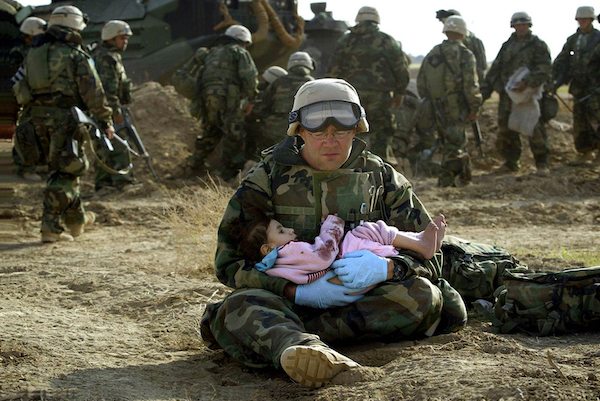
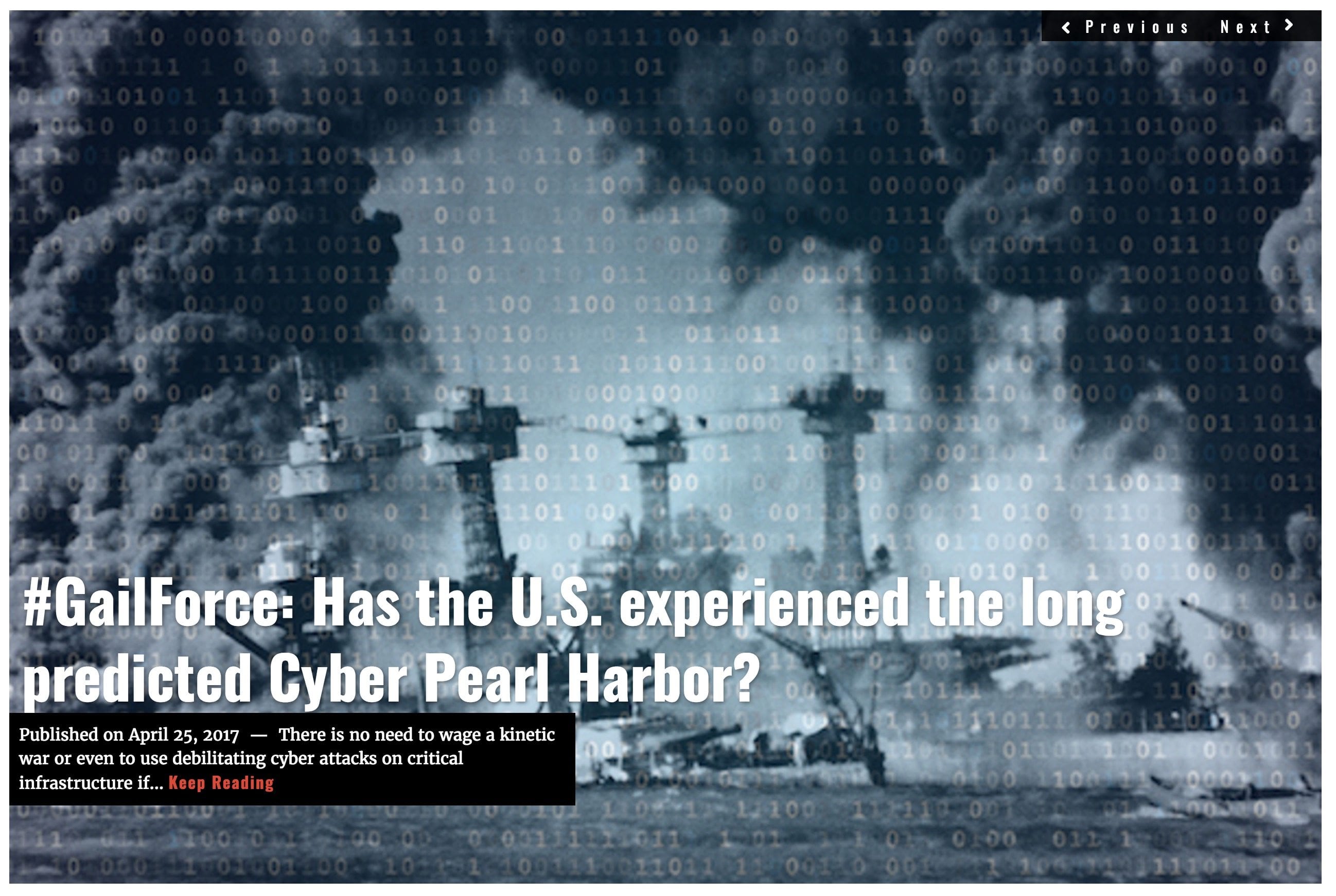
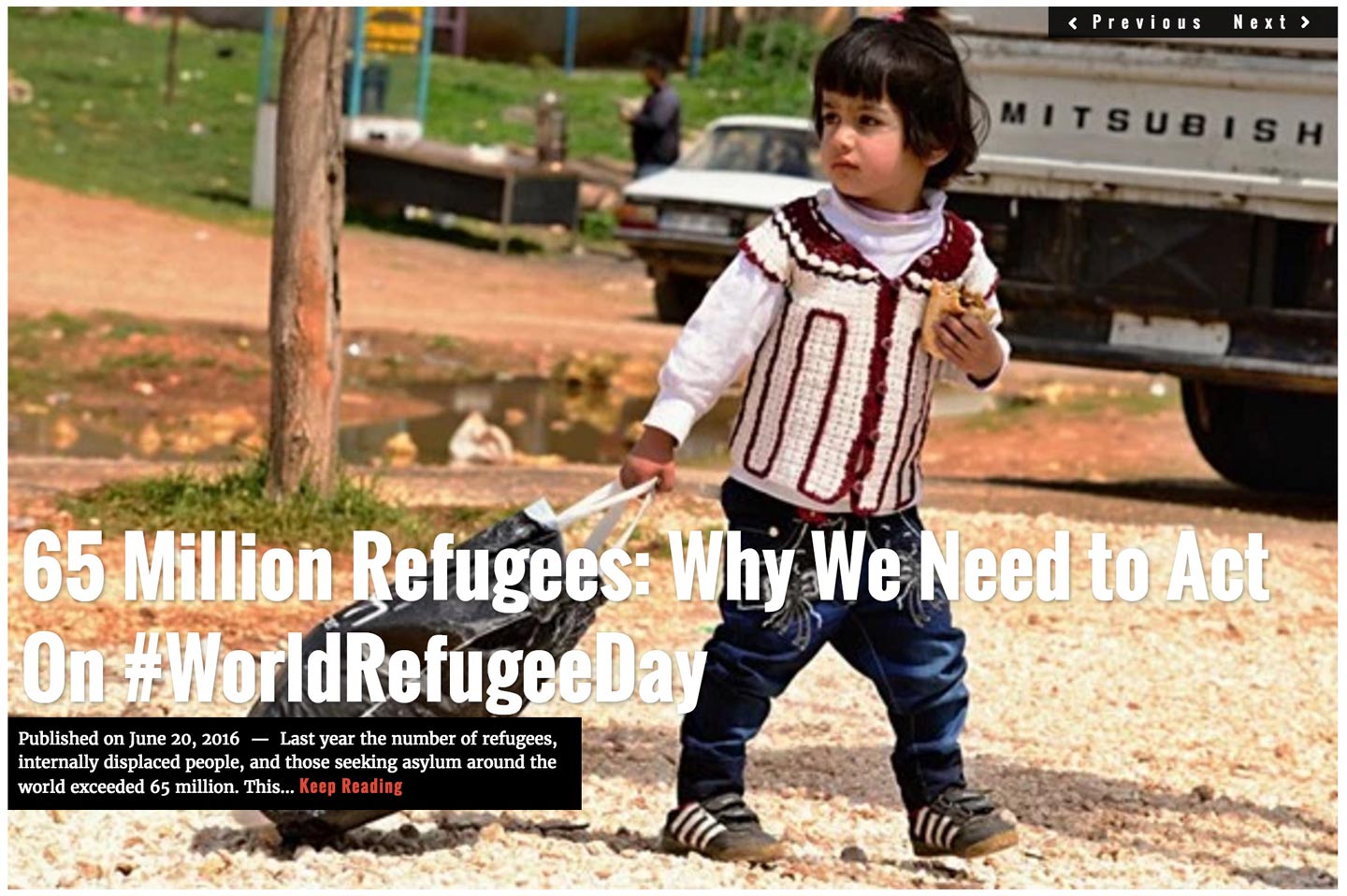
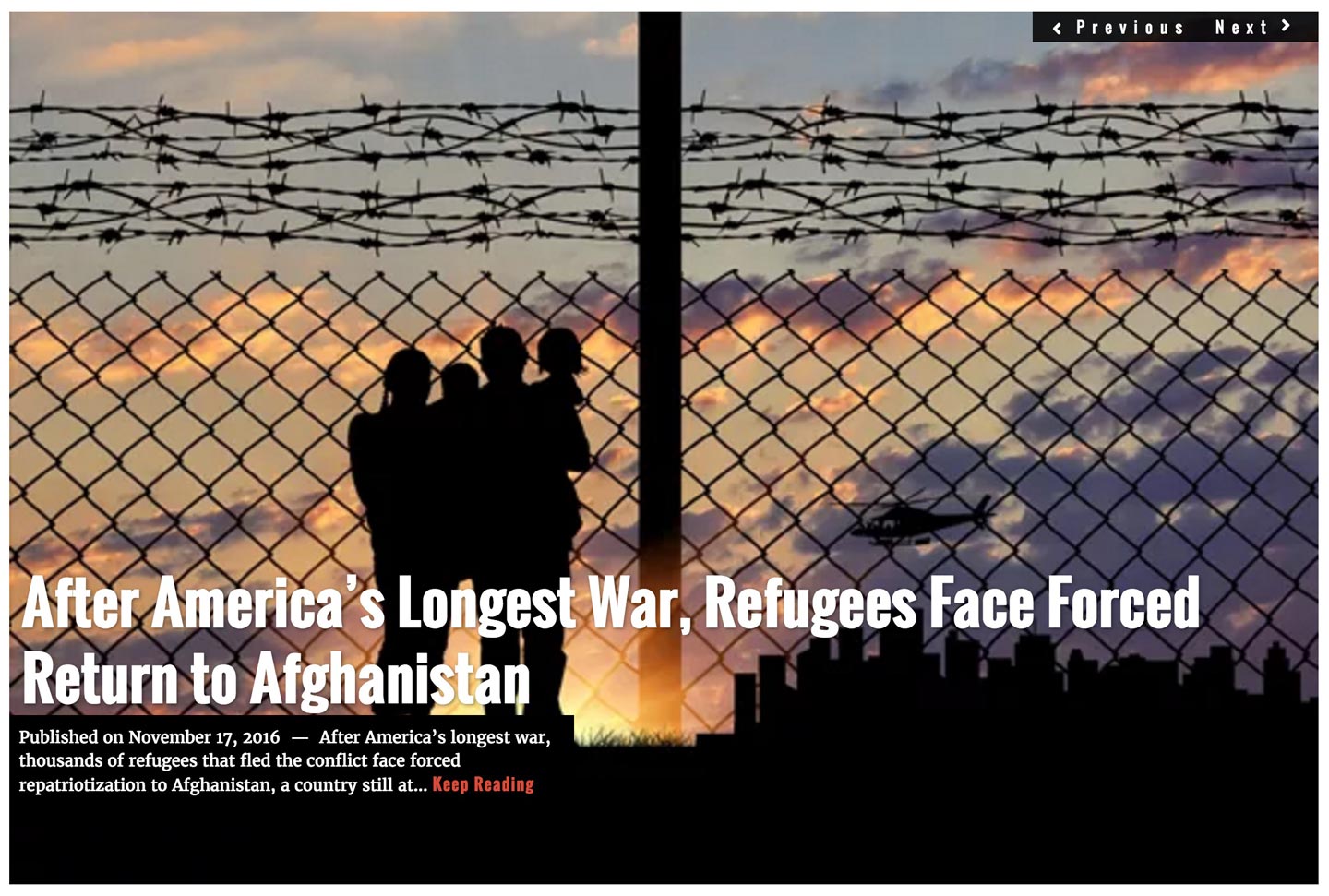
![Image GailForce to Space Force: 'Make it so' - the Space Force debate continues [Lima Charlie News]](https://limacharlienews.com/wp-content/uploads/2019/05/Space-Force-01-480x384.png)

![Image GailForce: Blinking Red - Cyber War and Malign Influence Operations Today [Lima Charlie News][Graphic: Lima Charlie News]](https://limacharlienews.com/wp-content/uploads/2018/08/GailForce-Blinking-Red-Cyber-War-and-Malign-Influence-Operations-Today-Lima-Charlie-News-01-480x384.png)
![Africa’s Elections | In Malawi, food, land, corruption dominate [Lima Charlie News]](https://limacharlienews.com/wp-content/uploads/2019/06/Malawi-election-Food-land-corruption-480x384.jpg)
![Image The Rwandan Jewel - Peacekeepers, Conflict Minerals and Lots of Foreign Aid [Lima Charlie World]](https://limacharlienews.com/wp-content/uploads/2019/03/Rwanda-Jewel-480x384.jpg)
![Image [Women's Day Warriors - Africa's queens, rebels and freedom fighters][Lima Charlie News]](https://limacharlienews.com/wp-content/uploads/2019/03/Womens-Day-Warriors-Lima-Charlie-News-480x384.jpg)
![Image Zimbabwe’s Election - Is there a path ahead? [Lima Charlie News]](https://limacharlienews.com/wp-content/uploads/2018/09/Zimbabwe’s-Election-Is-there-a-path-ahead-Lima-Charlie-News-480x384.png)
![[Silver lining for China in Zimbabwe’s violent elections][Lima Charlie News]](https://limacharlienews.com/wp-content/uploads/2018/08/Screen-Shot-2018-08-02-at-12.51.35-PM-480x384.png)
![Image GailForce to Space Force: 'Make it so' - the Space Force debate continues [Lima Charlie News]](https://limacharlienews.com/wp-content/uploads/2019/05/Space-Force-01-150x100.png)
